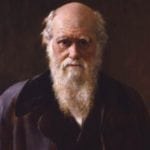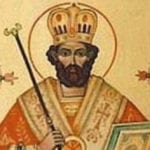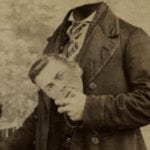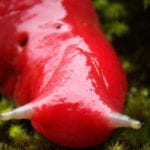 History
History  History
History  Weird Stuff
Weird Stuff 10 Wacky Conspiracy Theories You Will Need to Sit Down For
 Movies and TV
Movies and TV 10 Weird Ways That TV Shows Were Censored
 Our World
Our World 10 Places with Geological Features That Shouldn’t Exist
 Crime
Crime 10 Dark Details of the “Bodies in the Barrels” Murders
 Animals
Animals The Animal Kingdom’s 10 Greatest Dance Moves
 Movies and TV
Movies and TV 10 Box Office Bombs That We Should Have Predicted in 2025
 History
History 10 Extreme Laws That Tried to Engineer Society
 History
History 10 “Modern” Problems with Surprising Historical Analogs
 Health
Health 10 Everyday Activities That Secretly Alter Consciousness
 History
History 10 Dirty Government Secrets Revealed by Declassified Files
 Weird Stuff
Weird Stuff 10 Wacky Conspiracy Theories You Will Need to Sit Down For
 Movies and TV
Movies and TV 10 Weird Ways That TV Shows Were Censored
Who's Behind Listverse?

Jamie Frater
Head Editor
Jamie founded Listverse due to an insatiable desire to share fascinating, obscure, and bizarre facts. He has been a guest speaker on numerous national radio and television stations and is a five time published author.
More About Us Our World
Our World 10 Places with Geological Features That Shouldn’t Exist
 Crime
Crime 10 Dark Details of the “Bodies in the Barrels” Murders
 Animals
Animals The Animal Kingdom’s 10 Greatest Dance Moves
 Movies and TV
Movies and TV 10 Box Office Bombs That We Should Have Predicted in 2025
 History
History 10 Extreme Laws That Tried to Engineer Society
 History
History 10 “Modern” Problems with Surprising Historical Analogs
 Health
Health 10 Everyday Activities That Secretly Alter Consciousness
10 Strange And Interesting Facts About Charles Darwin
Charles Darwin, the brilliant naturalist whose works on the theory of evolution single-handedly founded modern biology, is one of the greatest scientists who ever lived. Revered by many and despised by some, his massive influence strongly remains in many aspects of our lives. In honor of his 205th birthday on February 12, let’s learn more about Charles Darwin, the life he led, and the legacy he left.
10 Darwin Was Mocked For Being Religious

The celebrated scientist is perhaps the most popular mascot for the atheist movement despite Darwin declaring himself agnostic during the later years of his life. He barely talked about his personal beliefs, except in his autobiography, and disliked talking about the implications of his theories on current theological doctrines, admitting that he knew very little about religion.
However, during his voyages, Darwin was known for being quite religious. In his autobiography, he recalled how he was mocked by officers of the HMS Beagle for believing that the Bible is a final authority on morality. Though he wasn’t very active in religious circles, the young Darwin had a firm conviction that God existed and that the soul is immortal. While in Brazil, the naturalist was so engrossed by the beauty of nature that he proclaimed it as the manifestation of a higher being.
Darwin had a difficult time making a transition to agnosticism. In fact, when he was beginning to question the existence of God, he said that he couldn’t appreciate the beauty of nature with the same religious vigor as he had when he was young. comparing the feeling to being “colorblind.”
9 Darwin Ate The Animals He Encountered

Darwin had a strange stomach for weird food. During his time in Cambridge, Darwin belonged to a culinary group called the Glutton Club whose members would meet each week to try various “exotic” dishes previously unknown to the human palate. To the Glutton Club, “exotic” isn’t just anything that isn’t crumpets and tea. The group is known to casually chow down meats of various wild birds like hawks and bitterns.
When the young naturalist was given the chance to go aboard the HMS Beagle, he rekindled his liking for undiscovered delicacies. During his trip, he was able to feast on armadillos, which he said “taste and look like duck.” He also had on his plate an unnamed, chocolate-colored rodent that he described as the best meat he ever tasted. Darwin would even discover a whole new species of a bird on his dinner plate, which would later be named after him: Rhea darwinii.
In Galapagos, Darwin rode tortoises and drank fluid from their bladders, which he described as “quite limpid and [having] only a very slightly bitter taste.” While on board the Beagle going to Tahiti, the crew lived on tortoise flesh for weeks, throwing the shells of the tortoise off the sea after they were done with them. His gastronomic exploits went even more extreme in South America, where he recalled eating a very white meat. At first, the naturalist felt a bit squeamish, thinking he was eating the meat of a calf. He was relieved to learn that he was instead eating the flesh of a puma, even comparing its taste to that of veal.
To commemorate Darwin’s life and his gourmet adventures, fans of the celebrated scientist meet every February for the Phylum Feast. It is an evolution-themed potluck dinner of delicacies made from as many different types of species as possible. Some of the foods that have been listed on the menu are Crusted Crustacea, Mollusca Salad, Primordial Soup, and Hunter-Gatherer Pie.
8 Darwin Inspired Karl Marx

Some people blame Charles Darwin’s theories for the ills of capitalism. A few of the first people to embrace natural selection applied it immediately to economy and society, thus giving birth to social Darwinism. Adherents of social Darwinism believe that a person’s economic success or failure is akin to an animal’s struggle for survival in the jungle. Social Darwinists discourage government assistance and charitable activities that help the poor because they believe the human species will grow stronger if society just allowed poor people—or the “unfit”—to die off. Notorious social Darwinists include the two wealthiest men of their time, Andrew Carnegie and John Rockefeller.
Though Darwin himself admitted to not having an adequate understanding of politics and economy, his theories undoubtedly affected the growth and greed of capitalism during the early 20th century. Because of this, most people assume that natural selection wasn’t well-received by those who opposed capitalism.
Surprisingly, the opposite is quite true. Charles Darwin actually had a huge positive influence on the opposite end of the spectrum. While social Darwinists saw Darwin’s theories as a way to justify greed and oppression, Karl Marx viewed them as an allegory for class struggles. The German philosopher saw Darwin’s Origin of Species as the biological basis of socialism. He stated that the struggle and survival of organisms affirmed the existence of class struggles that he observed to happen in the society. As an organism fights to survive in a hostile environment, a class must also fight against those who are exploiting them. The scientist’s influence on Karl Marx was so great that the famed socialist even planned on dedicating his book, Das Kapital, to the naturalist—a gesture that the latter respectfully declined.
7 Darwin The Psychologist

During his time with the Beagle, Darwin had the privilege of encountering various colorful cultures around the world. There were obvious language barriers that prevented him from communicating with the locals, but he noted that the emotions the people expressed—happiness, sadness, fear, and anger—didn’t seem to differ much from culture to culture. This would be the beginning of Charles Darwin’s lesser-known career in psychology and the eventual development of the concept of universal emotions.
He corresponded with many scientists to study this phenomenon, which included a French physician named Guillaume-Benjamin-Amand Duchenne. Duchenne studied facial muscles and proposed that all human faces expressed up to 60 different types of emotions. He’s most famous for the slides he captured of people’s faces stimulated with electricity to produce these 60 types of emotions.
However, Darwin disagreed that all 60 of these emotions were universal. He believed that only a few of these emotions were common across all human beings. To test his hypothesis, Darwin conducted an experiment using 11 of Duchenne’s slides. He placed them in random order and showed them one at a time to 20 participants, asking them what they made out of the slides. Almost all of Darwin’s participants agreed that some slides showed certain emotions like anger, happiness, and fear. The rest of the slides, however, appeared more ambiguous and the participants didn’t agree on a single emotion. This confirmed Darwin’s hypothesis of just a few universal emotions.
Darwin also dabbled with social psychology when he took interest in the human concept of compassion. Darwin believed that our sense of moral compassion stemmed from our natural desire to alleviate the suffering of others. Coincidentally, his ideas about compassion were very similar to the teachings of Tibetan Buddhism. Recently, upon learning about Darwin’s writings on the subject, the 14th Dalai Lama declared “I am now calling myself a Darwinian.”
6 Darwin’s Hilarious Take On Marriage

While the fact that Darwin married his own cousin, Emma Wedgewood, is very well-known, the events prior to their union aren’t as fairly revealed. In the months before his marriage, Darwin wasn’t very thrilled about tying the knot. He wrote an amusing list of pros and cons on the facets of marriage.
One upside Darwin saw to getting married was children:
“Children — (if it Please God) — Constant companion, (& friend in old age) who will feel interested in one, — object to be beloved & played with. — better than a dog anyhow”.
Darwin also liked the idea of a female companion:
“My God, it is intolerable to think of spending one’s whole life, like a neuter bee, working, working, & nothing after all. — No, no won’t do. — Imagine living all one’s day solitarily in smoky dirty London House. — Only picture to yourself a nice soft wife on a sofa with good fire, & books & music perhaps — Compare this vision with the dingy reality of Grt. Marlbro’ St.”
On the other hand, Darwin felt that taking the celibate path also had its benefits:
“Freedom to go where one liked — choice of Society & little of it. — Conversation of clever men at clubs — Not forced to visit relatives, & to bend in every trifle. — to have the expense & anxiety of children — perhaps quarelling — Loss of time. — cannot read in the Evenings — fatness & idleness…”
These are but a few of the items Darwin included on his list that prove Darwin was just like every other guy. Eventually, he would decide to marry Wedgewood and even call the day of his proposal the “Day of days.” The couple would be happily married for 43 years until Darwin’s death in 1882 and have 10 children.
5 Darwin And Water Therapy

Darwin wasn’t very fit. While there were many speculations on what made him very ill during the course of his life, he didn’t receive an accurate diagnosis of his condition until more than 100 years after his death. Because of the limitations of medicine during his time, there was no satisfying treatment to help him cope with his varying symptoms, but he found comfort from a very questionable source—water therapy.
In a letter he sent to his close friend, botanist Joseph Dalton Hooker, Darwin complained that he had been suffering from continuous vomiting. He also reported hand tremors and dizziness, which he presumed to result from the impact of the incessant vomiting on his nervous system. Upon reading a book by a certain Dr. Gully about water therapy, the naturalist became so interested with the treatment that he moved with his family to a rented apartment near Dr. Gully’s clinic to receive care from the specialist.
Dr. Gully subjected the naturalist to various strange procedures, which included heating him up with a “spirit lamp” until he perspired and then immediately rubbing him violently with towels soaked with cold water. He was also given cold foot baths and had to wear a wet compress on his stomach all day. Surprisingly, Darwin found the bizarre and unscientific treatment to be quite effective, recalling that he saw massive improvements with his health after the eighth day of his consultations with Dr. Gully. In the same letter addressed to Hooker, he declared that he felt “certain that the Water Cure is no quackery.”
4 Darwin The Earthquake Detective

At least 25 major earthquakes have been recorded to happen within the Chilean border since 1730, all of which have collectively killed thousands of people. Darwin had the unpleasant opportunity to experience one of these terrible tremors—the 1835 earthquake of Concepcion.
The earthquake was very strong, measuring at a magnitude of 8.8 on the Richter scale. The earthquake, which occurred for two minutes, only took six seconds to demolish the entire city. During the time of the quake, Darwin was traveling with the Beagle. When it reached the coast of Concepcion, Darwin immediately began to investigate the nature and origin of the earthquake. He described the devastation as “the most awful yet interesting spectacle I ever beheld.”
He made observations on the earthquake’s aftereffects, noticing that the coastline of Chile became permanently elevated, particularly the island of Santa Maria, which had grown 3 meters (10 ft) higher than its original altitude. He gathered his own observations and combined them with the local people’s testimonies to reconstruct the events prior and during the earthquake. After weeks of detective work, Darwin found out that the earthquake may have been caused by a chain of volcanoes along the coastline of Chile erupting shortly before the earthquake’s occurrence.
3 Darwin’s Deathbed “Conversion”
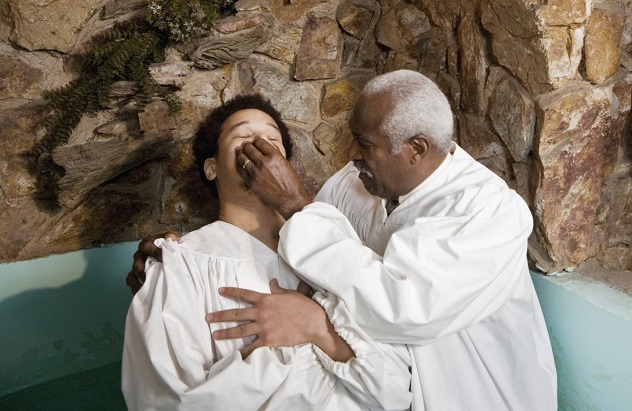
During the latter half of the 19th century, Darwin was already quite popular in scientific circles. Meanwhile, a woman named Elizabeth Hope was beginning to make a name for herself among evangelicals. Around the early 1880s, when Darwin was already nearing his death, Elizabeth Hope was just starting to become known in the evangelistic temperance movement.
Darwin and Hope belonged to two separate worlds. The two of them together in a single room seems too unlikely to happen, but a 1915 article from the Baptist newspaper Boston Watchman Examiner claimed exactly that. The article detailed how Darwin invited the young Elizabeth to his room and allegedly confessed his regret of developing the theory of evolution. He went on to ask the evangelist to share with his neighbors the message Jesus Christ and the salvation he brings to mankind.
The story was very appealing to evangelicals during the time. To learn that the mind behind the theory of evolution recanted his own ideas and converted to Christianity didn’t just give them a way to respond to so-called “evolutionists,” it also reaffirmed their faith in the biblical story of creation.
However, this story was debunked as quickly and easily as it spread. In Darwin’s autobiography, he repeatedly mentioned his dissociation with Christianity and concluded that agnosticism would be the most correct description of his state of mind. His son, Francis Darwin, proclaimed that his father maintained an agnostic view in life even until death. Darwin’s wife, who was very religious and would have loved to see him return to Christianity, never mentioned any such conversion taking place at Darwin’s death. She recalled that his last words were “remember what a good wife you have been to me” and that he “was not the least afraid to die.”
2 Darwin Was Neurotic

While Darwin suffered from many physical illnesses, some biographers of the late scientist were more intrigued by his state of mind. The man who exhibited incomparable brilliance during his lifetime would soon be revealed in his letters to his friends that he suffered from obsessive thoughts which, in his own words, were “of horrid spectacle.”
These thoughts, which occurred mostly during the night, caused him great distress. In a letter to his close confidante Dr. Hooker, Darwin wrote “I could not sleep and whatever I did in the day haunted me at night with vivid and most wearing repetition.” He was incessantly paranoid that he was going to pass his many illnesses to his offspring. He was also endlessly critical of his physical appearance, believing himself to be quite ugly. The scientist needed constant reassurance from others and found the need to utter a mantra hundreds of times to ease his obsessive thoughts.
Prominent psychiatrist and Darwin’s biographer John Bowlby noted that the genius scientist wasn’t able to properly grieve his mother’s death when he was young, which may have led to Darwin’s neurosis. It was in the face of these mental hardships that Darwin would become one of the most influential thinkers in history.
1 Ascension Island

In the south of the Atlantic 200 years ago, there was a tiny, isolated volcanic isle 1,600 kilometers (994 mi) off the coast of Africa called Ascension Island. Dry and lifeless, the island was uninhabited from its discovery in 1501 until 1815, when the British Royal Navy re-purposed it as a military station to keep an eye on Napoleon during his exile on the neighboring St. Helena. Today, the island is no longer dreary and desolate. Ascension Island now boasts a lush landscape and a population of around 1,100—thanks to Darwin.
His five-year voyage with the Beagle was about to end and the naturalist was eager to go home to London, where he heard his discoveries had caused great excitement. The Beagle passed by Ascension Island, where the sight of the apocalyptic island of bright red volcanic cones and black lava inspired the inquisitive Darwin. Shortly after Darwin returned to England, he and his close friend John Hooker created a simple plan to convert the dry and lifeless island into a “Little England.” With the help of the British Royal Navy, the two arranged for different species of plants from all over the world to be planted on the island, beginning on 1850 and continuing every year thereafter.
By the 1870s, the island’s highest peak had become significantly greener after eucalyptus, Norfolk Island pine, bamboo, and banana took over the island. Plants that weren’t usually seen side by side in other places were seen together for the first time in Ascension Island. The plants would also eventually harvest freshwater from the air, solving the problem of the island’s lack of a water supply. While ecosystems usually develop over millions of years, the artificial ecosystem created by Darwin and Hooker blossomed only in a matter of decades.
Darwin’s project on the Ascension Island is the first of just a few actual examples of “terraforming.” British ecologist David Wilkinson says that NASA could learn a thing or two from Darwin’s methods when they begin to do the same with Mars.
Asher Bayot is currently in grad school studying cognitive psychology. In his spare time, he watches lots of sitcoms and eats lots of ramen. You can send him an email here or follow him on Twitter.
